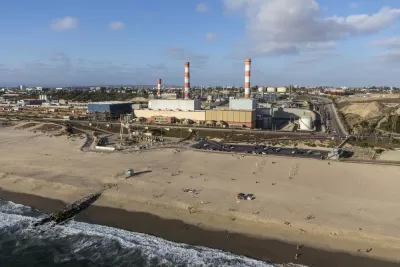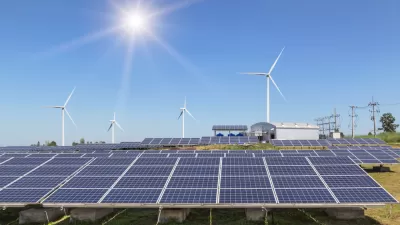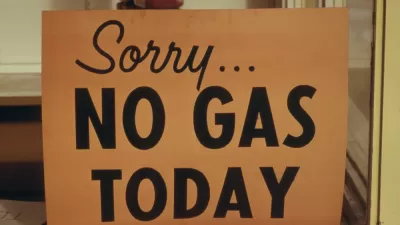The latest edition of the Rhodium Group's "Taking Stock" report accounts for the uncertainties of Covid-19 recovery while charting the trends in U.S. greenhouse gas emissions.

Rhodium Group recently published the latest edition on annual outlook for U.S. greenhouse gas (GHG) emissions under current federal and state policies.
"This current policy baseline provides a starting point for assessing where additional work—in the form of federal, state, or corporate action—is necessary to achieve mid- and long-term US GHG emission reduction goals," according to an article that shares the new report.
In a bit of positive news that might surprise, the country is on track to reduce GHG emissions 20 percent to 22 percent below 2005 levels by the year 2025. "Looking ahead to 2030, the US is on track to achieve emission reductions anywhere from 20% to 26% below 2005 levels, absent additional action," adds the article.
The report accounts for uncertainties surrounding the country's ongoing, uneven recovery from the Covid-19 pandemic. Given that uncertainty, the final tally in 2030 could range anywhere from 17 percent to 30 percent reductions from 2005 levels, according to the report.
Rhodium Group's ClimateDeck data platform includes baseline scenarios—including GHG emissions and underlying sectoral data—for the nation and all 50 U.S. states. The source article below also includes trend data for economic sectors like energy production, transportation, industry, and buildings.
Here are the two brief summaries, with more detail included in the source article, of the predicted emission trends in two of the sectors with most direct relevance to the nations planners:
- Transportation: "After a brief post-pandemic rebound, transportation emissions decline modestly through 2030, driven by fuel economy improvements in passenger vehicles and a shift toward electric vehicles (EVs)."
- Buildings: "Building efficiency improves but emissions from residential and commercial buildings remain effectively flat. Low-cost natural gas, increasing building square footage, and economic and population growth put upward pressure on building emissions, even while state policies make homes and businesses more efficient."
FULL STORY: Taking Stock 2021: US Emissions Outlook Under Current Policy

Maui's Vacation Rental Debate Turns Ugly
Verbal attacks, misinformation campaigns and fistfights plague a high-stakes debate to convert thousands of vacation rentals into long-term housing.

Planetizen Federal Action Tracker
A weekly monitor of how Trump’s orders and actions are impacting planners and planning in America.

In Urban Planning, AI Prompting Could be the New Design Thinking
Creativity has long been key to great urban design. What if we see AI as our new creative partner?

King County Supportive Housing Program Offers Hope for Unhoused Residents
The county is taking a ‘Housing First’ approach that prioritizes getting people into housing, then offering wraparound supportive services.

Researchers Use AI to Get Clearer Picture of US Housing
Analysts are using artificial intelligence to supercharge their research by allowing them to comb through data faster. Though these AI tools can be error prone, they save time and housing researchers are optimistic about the future.

Making Shared Micromobility More Inclusive
Cities and shared mobility system operators can do more to include people with disabilities in planning and operations, per a new report.
Urban Design for Planners 1: Software Tools
This six-course series explores essential urban design concepts using open source software and equips planners with the tools they need to participate fully in the urban design process.
Planning for Universal Design
Learn the tools for implementing Universal Design in planning regulations.
planning NEXT
Appalachian Highlands Housing Partners
Mpact (founded as Rail~Volution)
City of Camden Redevelopment Agency
City of Astoria
City of Portland
City of Laramie





























